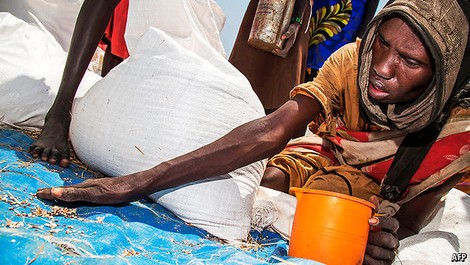Your podcast discovery platform
Curious minds select the most fascinating podcasts from around the world. Discover hand-piqd audio recommendations on your favorite topics.

piqer for: Globalization and politics Climate and Environment Technology and society Boom and bust
Cristina is a Spanish journalist based in London, she holds master’s degree in Journalism, Media and Globalisation at City University London and Aarhus University (Denmark). She has a keen interest in sustainable development and human rights and she curates -mostly- stories related to the Sustainable Development Goals. She has previous worked for United Nations and now collaborates with various publications such as El País, Chatham House, Huffington Post, Equal Times or eldiario.es.
Famine Is Caused By War, Not By Drought
Twenty million people are on the brink of famine, the UN warned last week. The situation is especially grave in four countries: Nigeria, Somalia, South Sudan and Yemen. This is the first time the term has been used since 2011, when the tragedy in the Horn of Africa claimed more than 260,000 lives. This is an emergency.
Trying to understand the causes of famine and not only staying on the surface, this article is an interesting point of departure. The very core issue is the following: "These days famine is never just a natural disaster; it is always a product of politics." It is true that in Somalia, the risk of starvation is caused partly from a severe drought, but, above all, what all these countries have in common is that they are facing brutal conflicts. Besides, local governments and warring factions are in most of the cases putting up barriers to improve the situation. Take a look, for instance, at the embargo that Saudi Arabia and its allies have imposed in Yemen. What does it mean for international institutions? A total failure. As the author emphasizes, the global response has been inadequate. Although vast amounts of money are spend on aid - UK planes are dropping aid sacks from the sky, and in the following weeks 300 British soldiers will be sent to South Sudan in peacekeeping operations - very little has been done to address the political problems that cause starvation.
Even though the article describes thoroughly the symptoms of famine, it does not provide a cure. Yet it raises an important question: which country aims to really intervene to defeat hunger?
In case the story from The Economist is not enough, this article from The New York Times can also help you understand the situation better.
